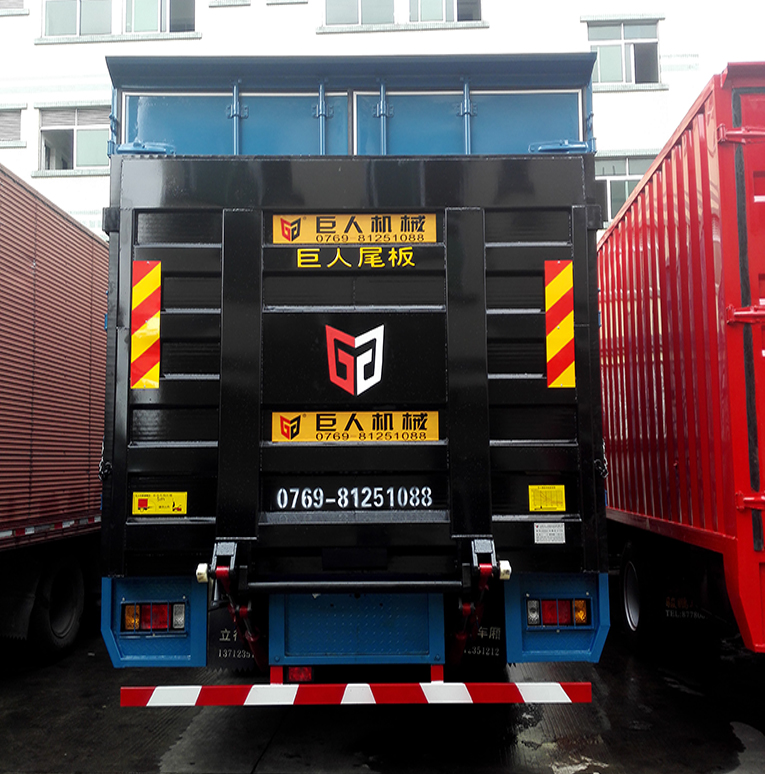The weight of the tailboard of a truck itself is a fundamental factor affecting fuel consumption. The tailboard of a truck has a certain weight. After installation, it will increase the total mass of the entire vehicle. According to the principles of physics, when a vehicle is in motion, it needs to overcome the resistance caused by its own gravity. The greater the weight of the vehicle, the more energy it consumes during the driving process, and the higher the fuel consumption. For instance, a truck with an original empty load of 5 tons, after being equipped with a 500-kilogram tailboard, is equivalent to carrying an additional half ton of weight. Under the same driving distance and road conditions, the engine of the truck with the tailboard installed needs to output greater power to drive the vehicle forward, which leads to an increase in fuel consumption. Moreover, when driving under such heavy loads for a long time, the working load on components such as the engine and transmission increases, which will also accelerate wear to a certain extent and indirectly affect the overall fuel economy of the vehicle.

The influence of usage frequency on fuel consumption is also quite significant. If the tailboard of a truck is frequently raised and lowered, during each lifting and lowering process of the tailboard, the hydraulic system, motor and other components of the tailboard need to consume energy to drive the tailboard to move. Although the energy consumed in a single lift or fall seems not much, when accumulated over multiple times, it will also increase the vehicle's energy consumption. In addition, frequent use of the tailboard means that the vehicle may stay for a longer time during loading and unloading, and the vehicle will be idling for a longer period. When a vehicle is idling, the engine is still running, and fuel is continuously consumed without generating an effective driving distance. This undoubtedly increases the fuel consumption per unit of cargo transportation mileage. For instance, a truck that needs to load and unload goods 10 times a day will consume significantly more fuel due to the use of tailboards compared to one that only does so 2 to 3 times a day.
The driving conditions are also related to the changes in fuel consumption brought about by the use of the tailboard. When driving on a flat road, the increase in fuel consumption caused by the added vehicle weight of the tailboard is relatively stable. However, when trucks travel on complex terrains such as mountainous and hilly areas where frequent climbing and descending are required, the impact of the tailplate on fuel consumption becomes more prominent. When climbing a slope, the vehicle needs to overcome the additional load brought by gravity and the tailboard. The engine needs to output greater torque, and fuel consumption will increase significantly. When going downhill, although the vehicle can use gravity to glide, frequent braking to control the speed will cause the vehicle to lose kinetic energy, and more fuel will be needed when starting to accelerate again. For trucks equipped with tailboards, the increase in fuel consumption will be greater under such complex road conditions than on flat roads.
However, the use of truck tailboards does not have a completely negative impact on fuel consumption. In some cases, tailboards enhance the efficiency of loading and unloading goods, reduce the waiting time of vehicles, and enable them to be engaged in the next transportation task. From an overall operational perspective, it is possible to balance the increase in fuel consumption caused by tailboards to a certain extent. Overall, however, the use of tailboards on trucks does have an impact on fuel consumption. In actual operation, transportation enterprises and drivers can minimize the adverse effect of tailboard use on fuel consumption by rationally planning transportation tasks and regularly maintaining the tailboards to ensure their good performance.

Professional to provide security
for modern logistics
A new company that efficiently handles
and unloads equipment
Please do not hesitate to contact us
0769-81251088

Add friend consultation